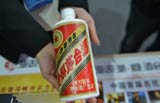'Made in China 2025' another step on road to modernization
By MIKE BASTIN (China Daily) Updated: 2015-05-26 09:54As if recent central government initiatives such as the China-led Asian Infrastructure Investment Bank were not enough, the State Council has unveiled a 10-year plan aimed at propelling Chinese manufacturing toward world-class status: "Made In China 2025".
Crucially, the plan targets world-class Chinese brands, and not just high-quality products, as the main goal.
Given the details disclosed by the Ministry of Industry and Information Technology, the government department most responsible for the plan's development, this is clearly another example of good, enabling government.
The MIIT has designated key sectors central to the plan's focus such as renewable-energy cars, aerospace equipment and biomedicine. And the 10-year time frame will support a longer-term approach to high-quality brand building across Chinese industry.
Coupled with the government's demonstrable commitment to the development of a vibrant, private sector-led economy, the "Made In China 2025" strategy will act as a further catalyst for change inside Chinese companies.
The "Chinese Dream", as well as a plethora of policies aimed at expediting the modernization of Chinese industry, is also playing an important part in the process of transformation from low-cost production to high-quality, premium branded goods and services across Chinese companies.
More foreign brands are losing their competitive edge in the minds of Chinese consumers, and increasing numbers of younger, talented business professionals are opting for long-term career paths at Chinese companies rather than what were previously perceived as more attractive foreign competitors.
The "Made In China 2025" strategy will solidify this trend and increase the attractiveness of domestic companies to the brightest and most aspirational Chinese business professionals.
Many argue that it is these younger groups, born after 1980 and particularly those born after 1990, that will contribute most to a more innovative, market-and premium brand-oriented business culture inside Chinese companies.
The 2025 strategy is another example of astute, strategic government thinking that will certainly steer these professionals toward Chinese industry. Other benefits of the initiative include further support for the international expansion of Chinese companies and the long-term development of China's creative industries such as fashion and luxury brands.
Sustainable development and innovation are both central to success in these areas, too.
The government's continued guidance is all the more likely to lead to success given the derision with which government support for industry is received across the most developed economies.
"Made In China 2025" represents anything but reckless State intervention. Instead it stands as yet another clearly thought-out government initiative that should enable Chinese industry to move to a more modern culture of high quality, high investment and a brand-oriented business environment.
The author is a visiting professor at the University of International Business and Economics in Beijing and a senior lecturer on marketing at Southampton Solent University's School of Business. The views do not necessarily reflect those of China Daily.
- Alibaba-backed Internet bank approved to open
- 2015 Intl CES Asia opens in Shanghai
- German rail giant mulls buying trains from China
- Risk awareness vital for success of trade moves, agency says
- Changing tastes of modern Chinese households
- Top 9 smartphone-driven gadgets
- IT security plan 'to safeguard State secrets'
- Local govt debt rules eased

















